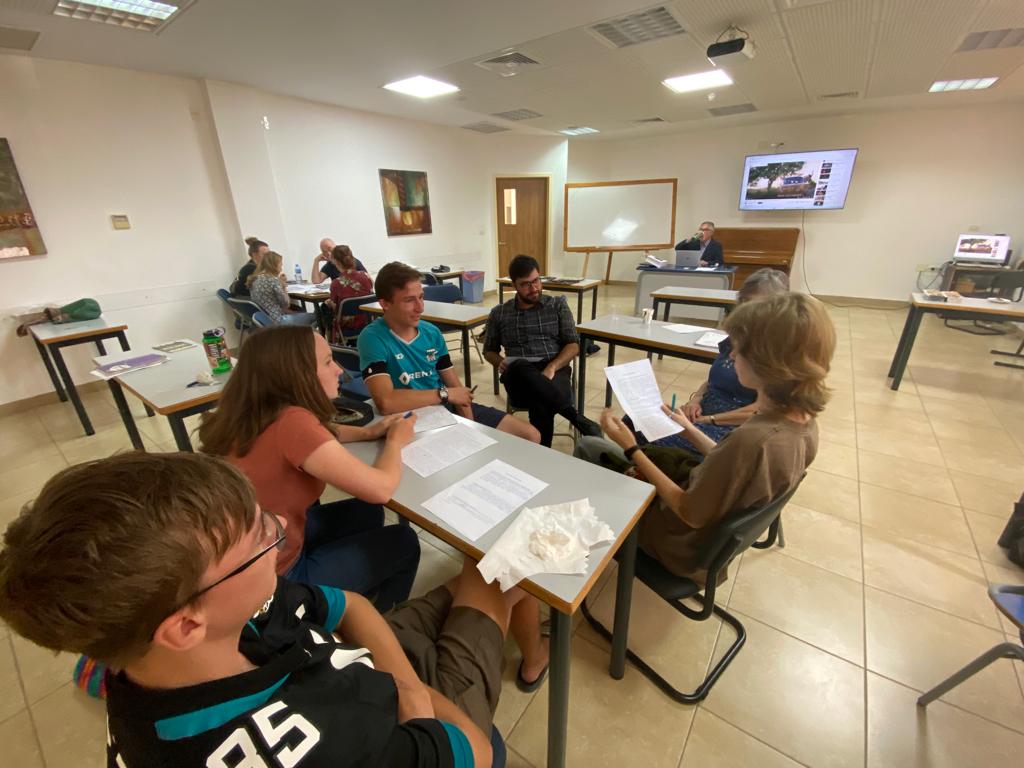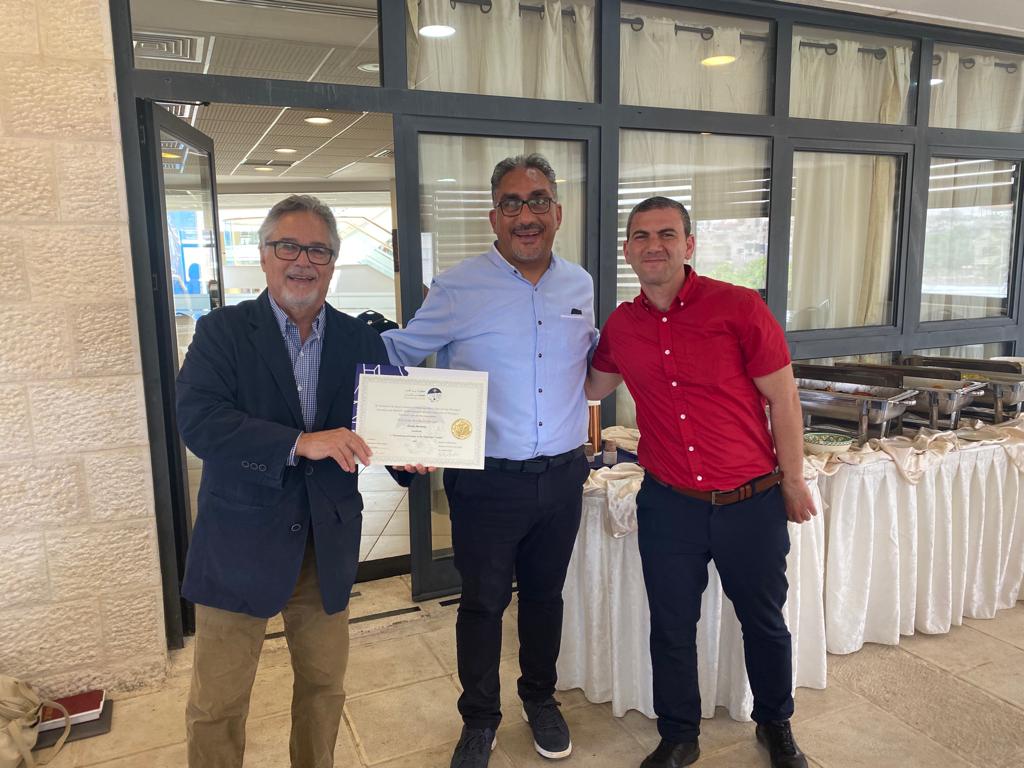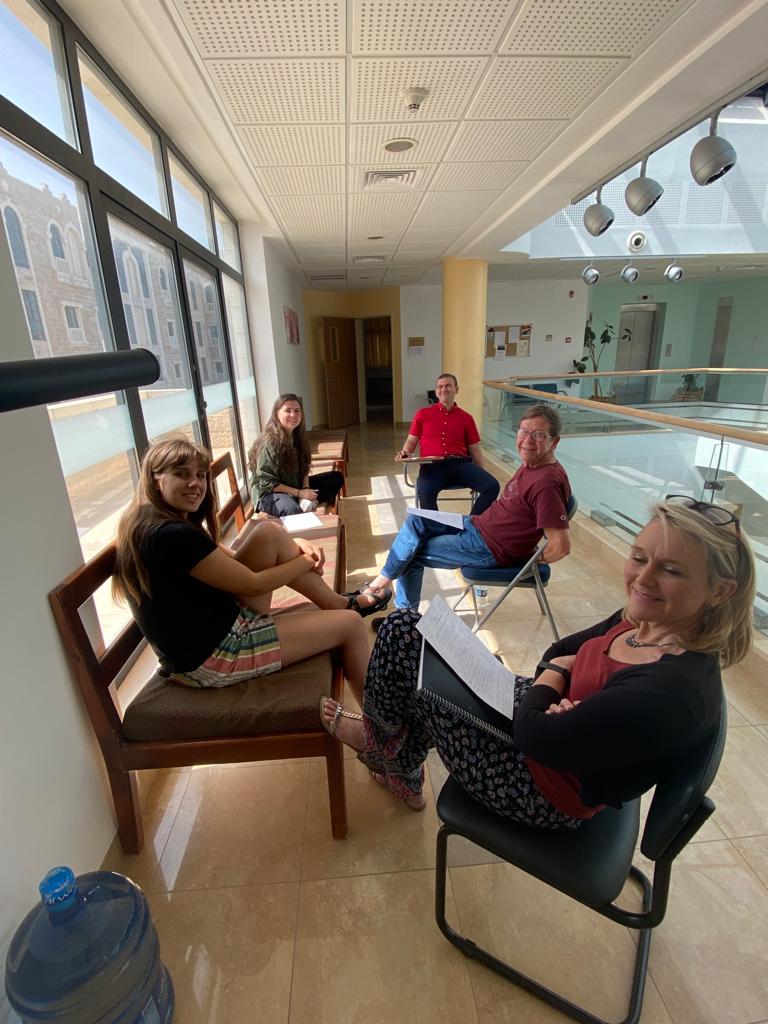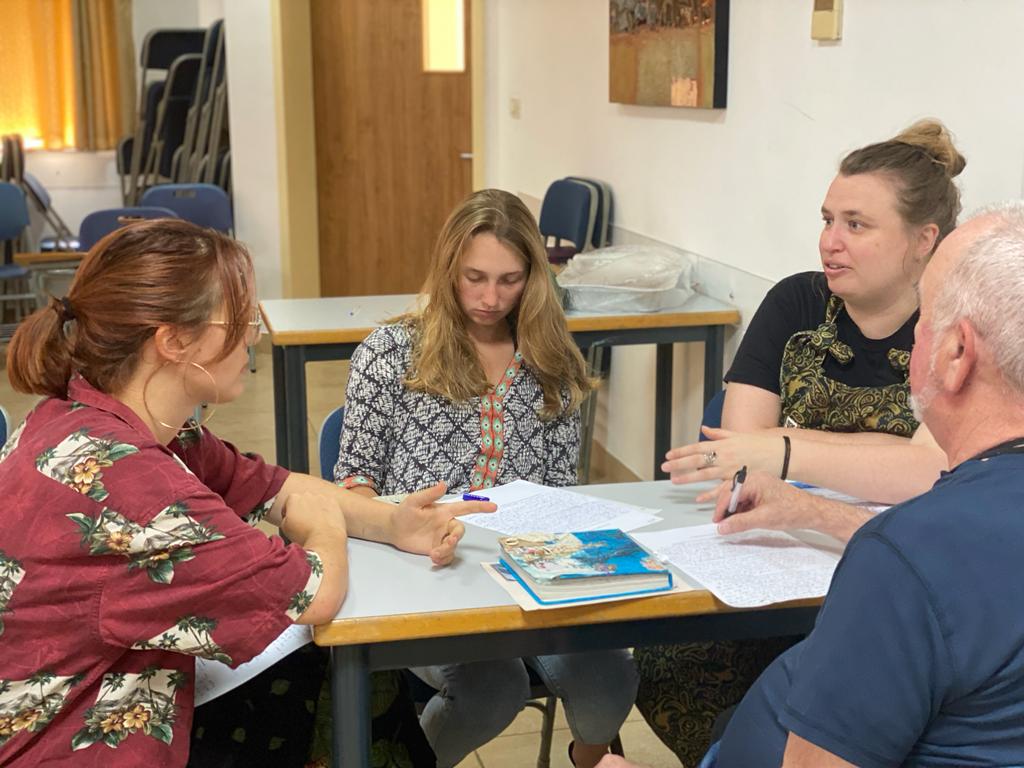Certificate Program Courses
Peacemaking and Justice in the Palestinian Context 1 and 2 are asynchronous, guided, online courses that introduce key concepts in both the theory and practice of peacemaking and justice in the context of Palestine and Israel and as expressed by Palestinian Christians and other international scholars. Combined with the Summer Intensive in Bethlehem, these two courses comprise the Certificate Program in Peacemaking and Justice in the Palestinian Context. These courses are open to both undergraduate, graduate, and auditing students. These are three credit/hour courses offered in the Fall and Spring semesters and are 14 weeks in duration. The Fall semester course begins in mid-September and ends mid-December. The Spring semester course begins mid-January and ends mid-April.
The courses are conducted online on the learning platform of Bethlehem Bible College, ItsLearning. Lectures are delivered through recorded videos by the lecturers (see below) so participants can access the lectures at their own convenience. Students respond weekly to reflection questions posed by the lecturers. Students collaborate in teams on final “conflict mapping” projects which explore various global conflicts. The course reading material is provided online. The reading and research project assignments are adjusted for the academic level. The weekly reading assignment will be approximately 30-50 pages for undergraduate and graduate students 60-100 pages. The course instructor interacts with the students throughout the course.
Enrollment Options and Costs
Option one: Audit (non-credit basis)
Students selecting this option have no academic requirements. Auditing students have access to the video-recorded lectures and the assigned reading material without obligation to complete the writing assignments or final project. The instructor will check in with the audit students but largely they work at their own pace. The cost of tuition to audit is $240.00 for each semester-length (3 credit) course.
Option two: Credit Basis
Students selecting this option have the option to take the courses individually for credit without the obligation to take more than one course (3 credit hours) or enroll in the Summer Intensive in Bethlehem. The cost of tuition for credit is $495.00 for each semester-length (3 credit) course.
Each lecture introduces a rich perspective on the holistic discipline of peace studies
Peacemaking and Justice in the Palestinian Context 1 explores fundamental concepts in peacemaking and justice, the history of the Israeli/Palestinian conflict and present realities on the ground; Biblical theologies of peace; reflections on peace and justice from the perspective of Judaism and Islam; non-violence and peacemaking; the practice of sulha in Arab societies and how it relates to other models of reconciliation; conflict and identity in the Palestinian context; the importance of indigenous narrative; the pursuit of social justice for minority peoples in Myanmar; and the possibilities for peace and justice for all the people of Palestine and Israel.
Peacemaking and Justice in the Palestinian Context 2 builds on Peacemaking and Justice in the Palestinian Context 1 but also may be taken as a stand-alone course. This course will continue the introduction to essential tools for peacemakers in contexts of conflict throughout the world. It will explore the importance of culture in peacemaking, steps in reconciliation, the pursuit of justice for Dalits (untouchables) in India, and racial justice in South Africa; the importance of Christian and Muslim dialogue in the Middle East; Western Christian and Palestinian Christian perspectives on the Palestinian/Israeli conflict and prospects for peace; international law, human rights, and peace and justice; women in peacemaking in Israel and Palestine; spirituality and the peacemaker; and current grassroots peace initiatives in Israel and Palestine.
Lecturers in Peacemaking and Justice in the Palestinian Context 1 and 2
Palestinian Faculty
- Dr. Rula Mansour, Director, Peace Studies, Nazareth Evangelical College, Nazareth, Israel
- Dr. Salim Munayer, Founder, Musalaha, Bethlehem
- Shireen Awwad Hilal, Director, Community Outreach and Development, Bethlehem Bible College, Bethlehem
- Rev. Dr. Munther Isaac, Dean of Bethlehem Bible College, Director, Christ at the Checkpoint, Bethlehem
- Dr. Hanna Katanacho, Dean of Nazareth Evangelical College, Nazareth, Israel
- Atty. Jonathan Kuttab, Member, Board of Directors, Bethlehem Bible College, and Human Rights Attorney, Palestine
International Faculty
- Dr. Martin Accad, Chief Academic Officer, Arab Baptist Theological Seminary, Beirut, Lebanon
- Rev. Dr. Andrew F. Bush, Director, Bethlehem Institute of Peace and Justice, Professor Emeritus, Eastern University, St. David’s, Pennsylvania
- Rev. Dr. Mae Cannon, Director Churches for Middle East Peace, Washington D.C.
- Rev. Frank Chikane, Member, African National Congress, Chair, Board of Directors of the Apostolic Faith Mission Theological College, South Africa
- Rev. Dr. LaSeng Dingrin, Eastern University, St. David’s Pennsylvania
- Dr. David Elcott, Taub Professor of Practice in Public Service and Leadership at the Wagner School of Public Service at New York University
- Lisa Loden, Co-chair of the Lausanne Initiative for Reconciliation in Israel and Palestine
- Rev. Vincent Manoharan, Founder, National Campaign on Dalit Human Rights, Delhi, India





